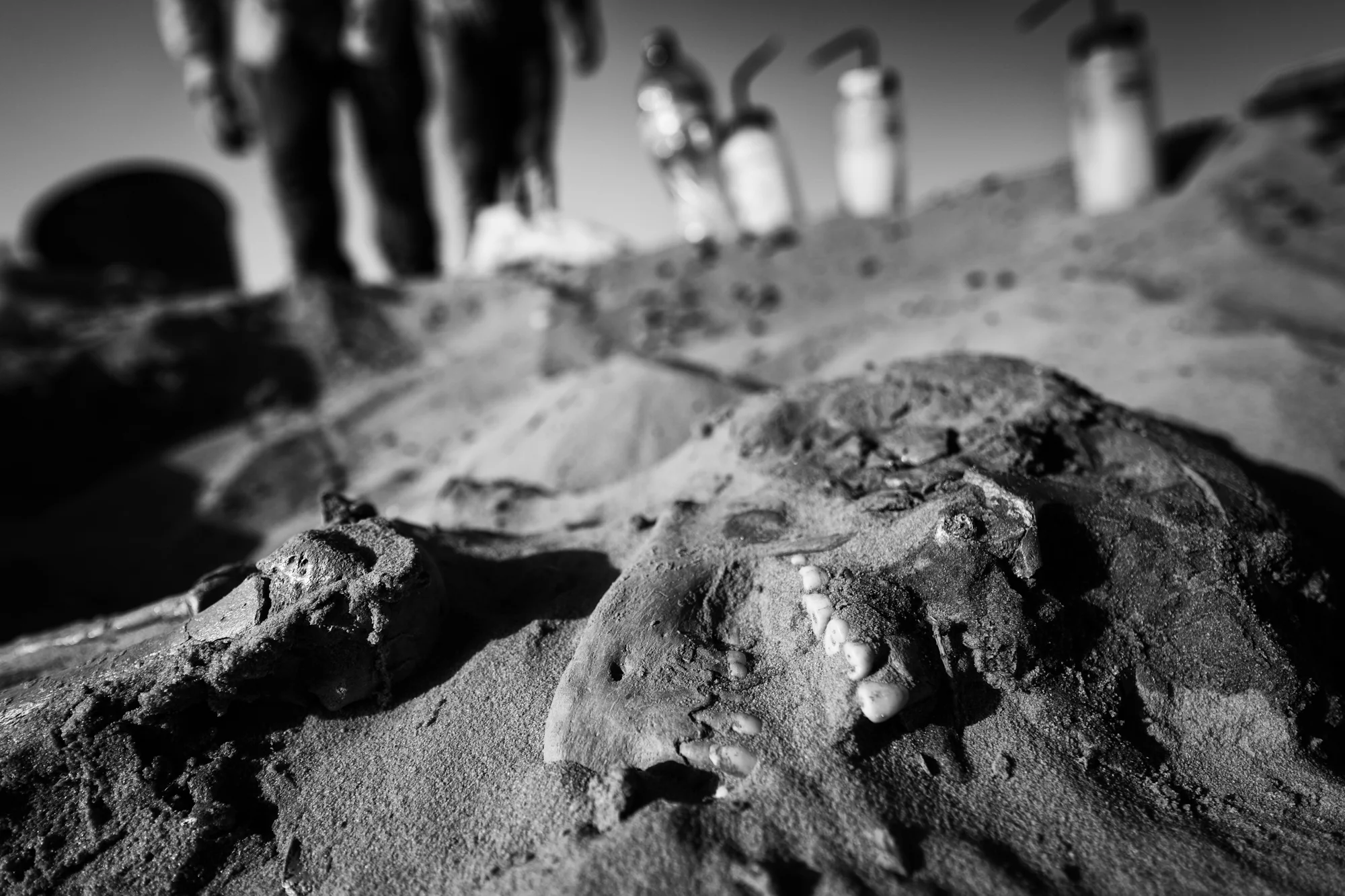We drove through the desert, meandering between groves of acacia trees that dotted the landscape. In the distance, camel trains made their way north, carrying supplies for the month-long trek to the salt mines. As we pressed on in the heat, crescent-shaped sand dunes slowly rose above the horizon only to sink back into the sea behind us.
I had always wanted to visit Africa, so when I was given the chance to follow a group of paleontologists around Niger in search of dinosaurs and ancient humans, I immediately jumped at the opportunity.
Our caravan left Agadez, headed east, flanked by a number of military vehicles. The legs of about 30 soldiers dangled over the sides of the trucks as we crept across the arid desert. Worn hands clutched AK-47s. Men in camouflage stood at attention behind .50 caliber machine guns. Drug smuggling, gun running and banditry were common enough that the government required a military presents when traveling outside major cities. It was a reality I was unfamiliar with.
To the north, an unseasonable thunderstorm loomed over the Aïr mountains. It was just after sunset when we made camp in a wide rocky wash that only filled during the height of the rainy season. The crew quickly pitched tents, made dinner, and listened to the rumbling in the distance. Flashes of light lit up the night as the storm raced across the sky. We watched for about an hour until a light rain forced us into our tents.
The following morning, our caravan puttered on, hoping to make the most of our limited time before the sun made everything miserable. After driving for what felt like an eternity, we came to a stop a few hundred yards from a small sandy rise. There was nothing about this spot that was any different than the last hundred kilometers, except that some of the team was visibly excited.
We left the vehicles and walked across the sand in single file, trying not to disturb too much of the surroundings. Everyone was staring down at the ground looking for clues; small bone fragments, arrowheads, other anomalies that stood out. We found a few spots that had potential discoveries, but because it was late, we decided to set up camp and figure everything out the following morning.
As I laid in my tent, I thought about the timeline of existence that brought us to this point. 10,000 years ago, the Sahara was inhabited by humans along with a wide variety of animals; hippos, elephants, giraffes, and antelope. Just outside camp was an old graveyard that spanned thousands of years. It had passed through many iterations of what was survivable in the desert.
Every thousand years or so the climate would shift, animals would move out and the humans would follow, only to return when the rains did. 3,000-year-old bodies were carefully buried above 5,000 to 10,000-year-old bodies, as if those that buried the dead were acutely aware of the regions history. It was hard to grasp the enormity of it all.
The next morning, the crew started digging where they suspected some burials might be. When they found some small bone fragments, they cordoned off an area surrounding them and carefully started brushing away the sand. A few hours later, the outlines of larger bones emerged and by evening, there it was; the skeleton of an ancient human laying on its side, mouth agape, crying out from the grave. It was a strange feeling staring at the remains. It felt illicit, as if I was watching a secret unfold before me.
That night, I had no shortage of thoughts racing through my head. The United States is almost 250 years old. Throughout its history we’ve seen uninterrupted wars consume the middle and lower class. Hatred and intolerance simmers under the surface, manifesting itself daily. We’ve created a civilization that is capable of great things and yet we pollute our rivers and oceans. We burn down forests and fill the air with toxic chemicals. It doesn’t feel sustainable.
Maybe it’s not so much that it feels unsustainable, but that it is unsustainable. At some point the human race will end and all evidence that we existed will disappear. Our bones will return to the earth, our empty cities will turn to dust, and yet life will continue. Seasons will come and go, and as the world breathes, time will steadily push forward. It’s a beautiful reminder that we will all be forgotten in the end and what matters most are the actions that we make now to improve our lives and the lives of those around us.
